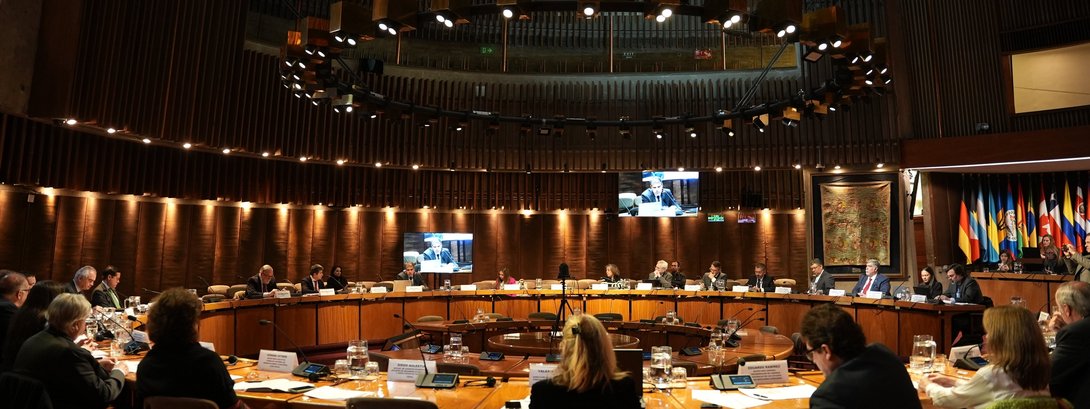Employers Driving Change: Advancing Productive Development in Latin America
Key takeaways from a pivotal regional dialogue in Santiago, Chile, where leaders converged to strengthen collaboration between public and private sectors for sustainable economic growth across Latin America.
On 28 June 2024, a Regional Dialogue focusing on the private sector's role in productive development policies took place in Santiago, Chile. Jointly organised by the Economic Commission for Latin America and the Caribbean (ECLAC), the International Organisation of Employers (IOE), and the International Labour Organization (ILO), the event was held at ECLAC's headquarters.
A robust IOE delegation from over 20 countries across Latin America and the Caribbean participated in the event. The dialogue emphasised the urgent need to address low economic growth in the region by enhancing productive development policies. All stakeholders at the event concurred that the private sector plays a crucial role in driving this change.
The importance of developing and implementing targeted strategies across various sectors, including local areas beyond capital cities, to boost productive development was emphasised. Challenges within the public sector were identified, highlighting the necessity for consistent state policies regardless of government changes. Additionally, the dialogue underscored the need for comprehensive agendas to improve the investment climate.
Social dialogue was recognised as crucial for productive development, with a call to evaluate the various types of dialogues occurring in different countries to identify the most effective approaches. Opportunities to enhance and strengthen productive development policies were discussed, highlighting the region's diverse experiences and the frequent disconnect between many initiatives and government policies. A significant challenge identified was the need to better organise and scale up these initiatives.
To enhance coordination between the government and the private sector, three key areas of focus were identified: analysing current productive development efforts, reviewing strategies for disseminating and sharing knowledge on the issue, and increasing private sector interaction with governments through inter-governmental bodies such as ECLAC. The dialogue with ECLAC was deemed crucial, emphasising the need for ongoing collaboration between business representatives convened by IOE and ECLAC. This partnership aims to identify regional actions, support their implementation in various countries, and build mutual trust.
During the event, several critical topics were discussed, including economic stability, skill development, education quality, inclusive and flexible labour markets, transition to formality, access to credit, property rights, and the rule of law. It was noted that the region faces three significant development traps: low, volatile, exclusive, and unsustainable economic growth; high inequality with limited social mobility and cohesion; and weak institutions coupled with ineffective governance.
The region must overcome economic stagnation amid globalisation, rapid technological change, the digital revolution, and advances in artificial intelligence. It was warned that persisting on the path of stagnation could result in lost social peace, growing inequality and violence, increased migration, and the eventual erosion of democracy. A stagnant economy and a frustrated population with no hope for a better future are fundamentally incompatible with a thriving democracy.
To conclude, the Regional Dialogue emphasised the need for a united and coordinated effort between the public and private sectors to advance inclusive and sustainable productive development in Latin America.



